A wave front AB passing through a system C emerges as DE. The system C could be
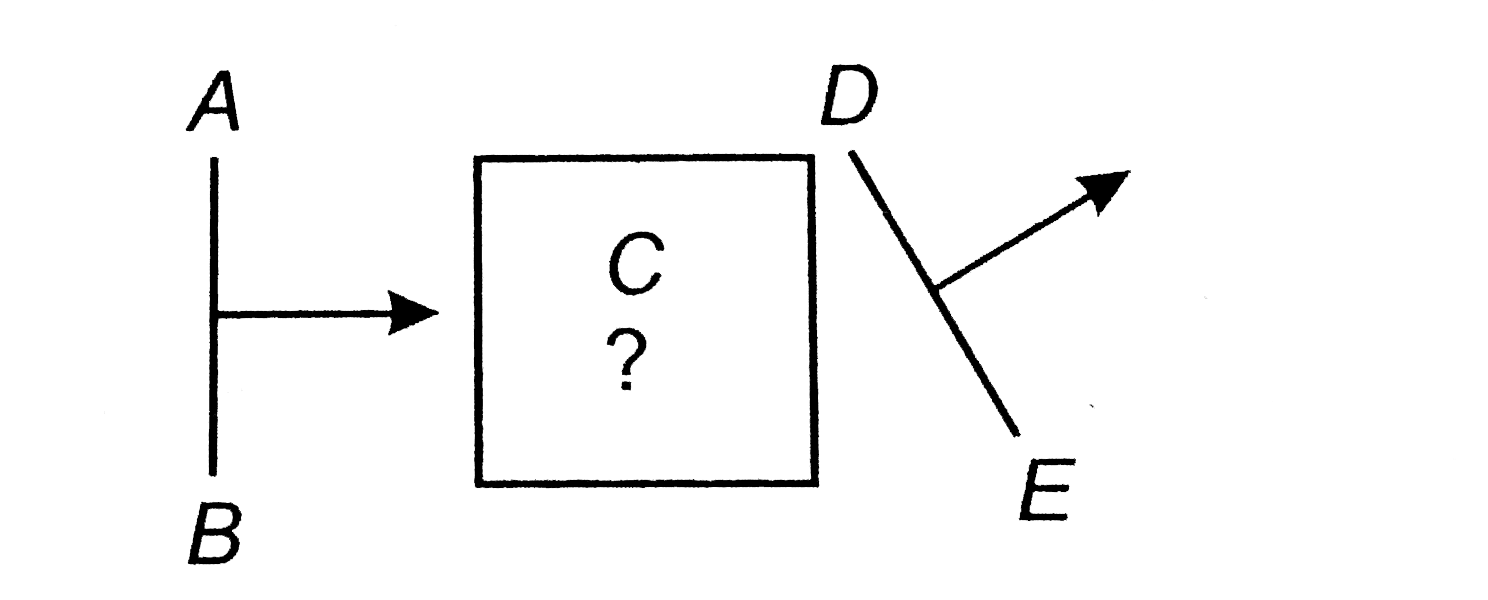
a slit
a biprism
a prism
a glass slab
The correct Answer is:c
A slit would give divergent, a biprism would give double, a glass slab would give a parallel N100wavefront. Edge is downward.
Topper's Solved these Questions
- WAVE OPTICSBOOK - CENGAGE PHYSICSCHAPTER - WAVE OPTICSEXERCISE - Multiple Correct
8 Videos
- WAVE OPTICSBOOK - CENGAGE PHYSICSCHAPTER - WAVE OPTICSEXERCISE - Assertion- Reasoning
13 Videos
- WAVE OPTICSBOOK - CENGAGE PHYSICSCHAPTER - WAVE OPTICSEXERCISE - Subjective
11 Videos
- THERMODYNAMICSBOOK - CENGAGE PHYSICSCHAPTER - THERMODYNAMICSEXERCISE - QUESTION BANK
34 Videos
- WAVESBOOK - CENGAGE PHYSICSCHAPTER - WAVESEXERCISE - QUESTION BANK
38 Videos
Similar Questions
a) Define a wave front.
b) Draw the diagram to show the shape of plane wave front as they pass through (i) a thin prism and (ii) a thin convex lens. State the nature of refracted wave front.
c) Verify Snell’s law of refraction using Huygens’s principle
View SolutionWhen a system is taken from A to C through path ABC, 10 J of heat flows to the system and 4 J of work is done by the system.

How much heat flows into the system in path ADC, if the work done by the system is 3 J ?
View Solution
Knowledge Check
A wavefront AB passing through a system C emerges as DE (As shown in the following figure). The system C could be
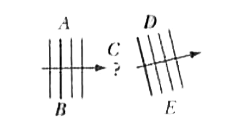 AA slitBA prismCA biprismDA glass slab
AA slitBA prismCA biprismDA glass slabFigures shows a wave front P passing through two systems A and B, and emerging as Q and then as R. The systems A and B could, respectively, be
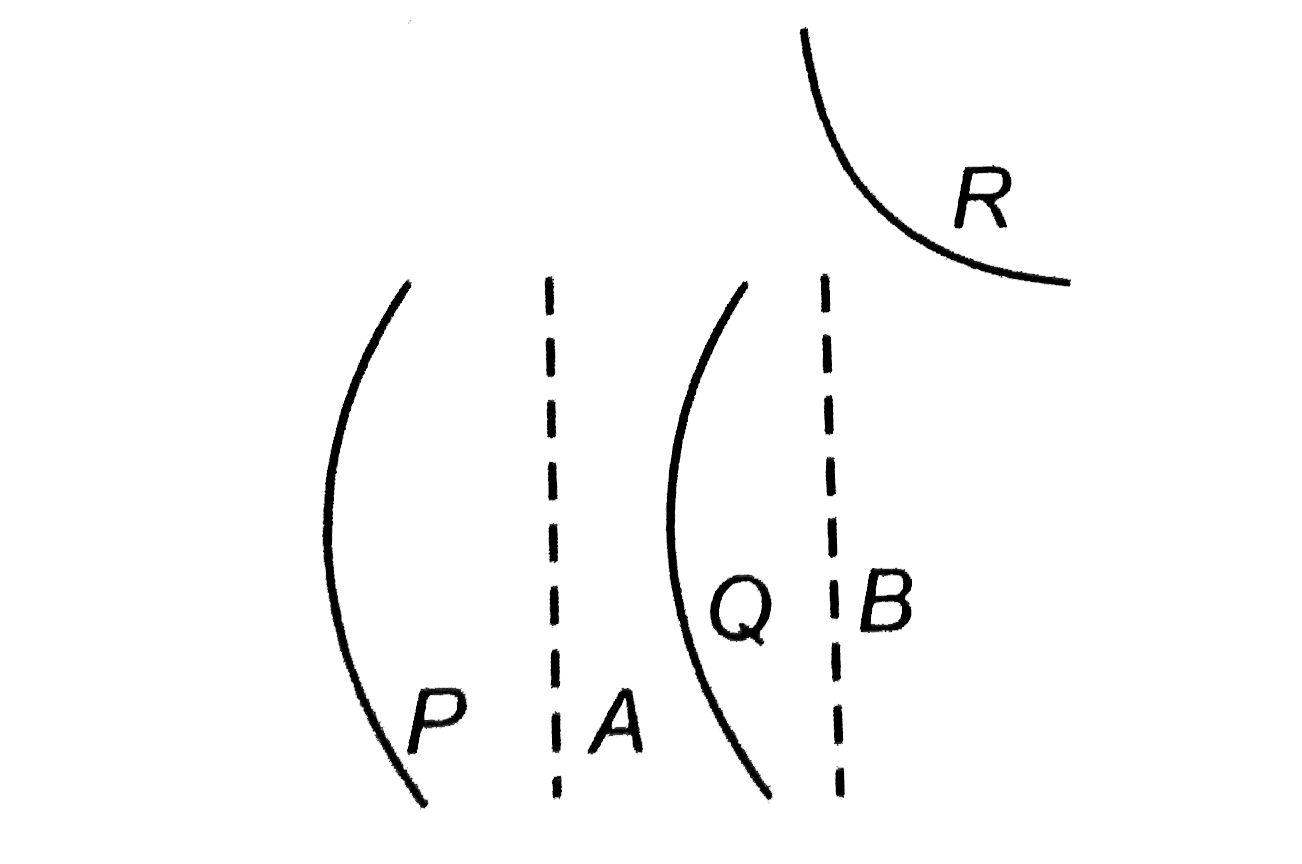 Aa prism and a convergent lensBa convergent lens and a prismCa divergent lens and a prismDa convergent lens and a divergent lens
Aa prism and a convergent lensBa convergent lens and a prismCa divergent lens and a prismDa convergent lens and a divergent lensFigure shows wavefront P Passing through two systems A and B, and emerging as Q and then as R. Then systems A and B could, respectively, be
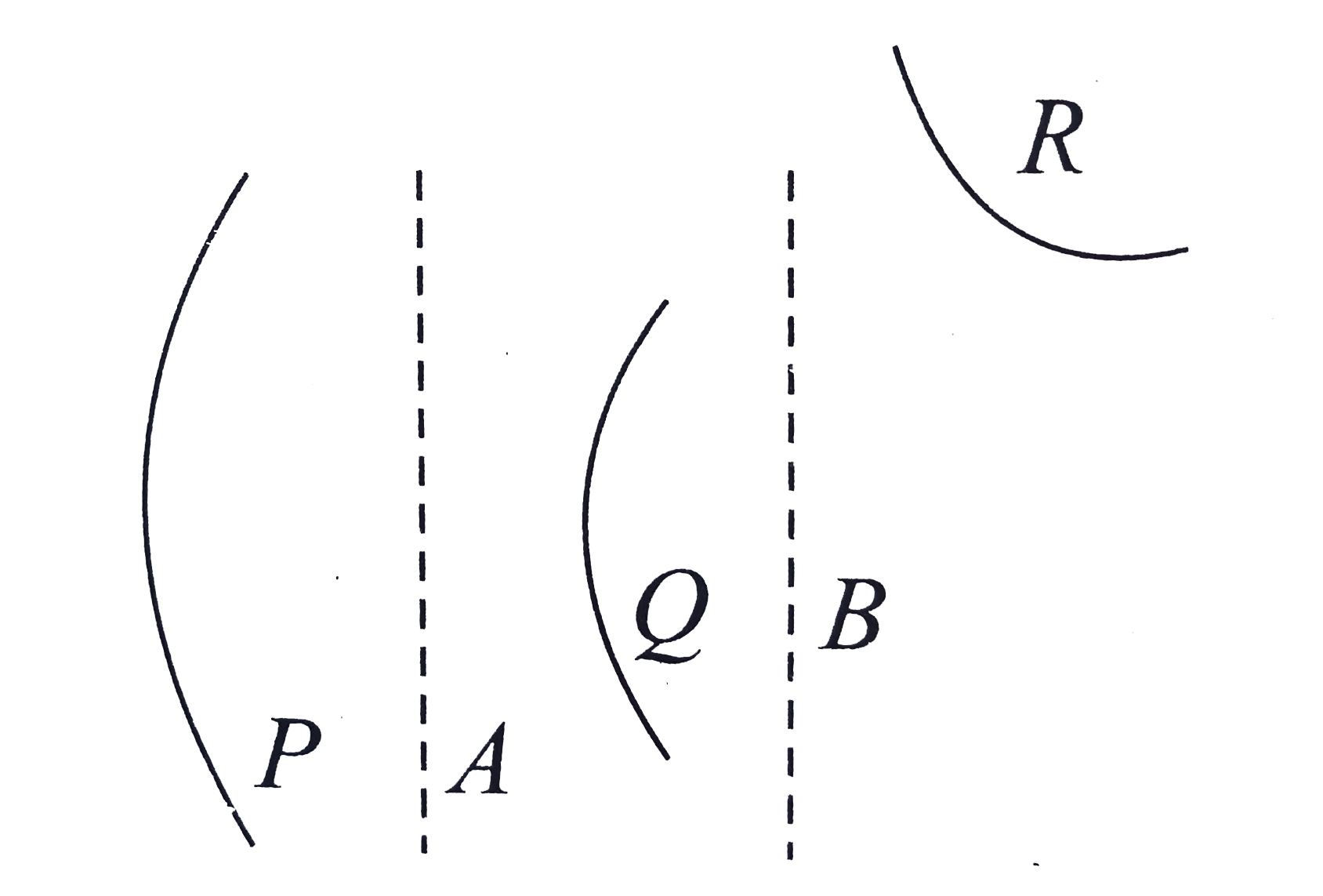 Aa prism and a convergent lensBa convergent lens and a prismCa divergent lens and a prismDa convergent lens and a divergent lens
Aa prism and a convergent lensBa convergent lens and a prismCa divergent lens and a prismDa convergent lens and a divergent lens
In an isosceles triangle ABC with AB=AC, a circle passing through B and C intersects the sides ABandAC atDandE respectively. Prove that DECB.
View SolutionArrange the order of power dissipated in the given circuits, if the same current is passing through the system. The resistance of each resistor is 'r'.

View SolutionD.E. of lines, passing through the origin, is
View SolutionThe equation of the circle passing through (0, 0) and belonging to the system of circles of which (3, 1) and (-1, 5) are limiting points, is
View Solution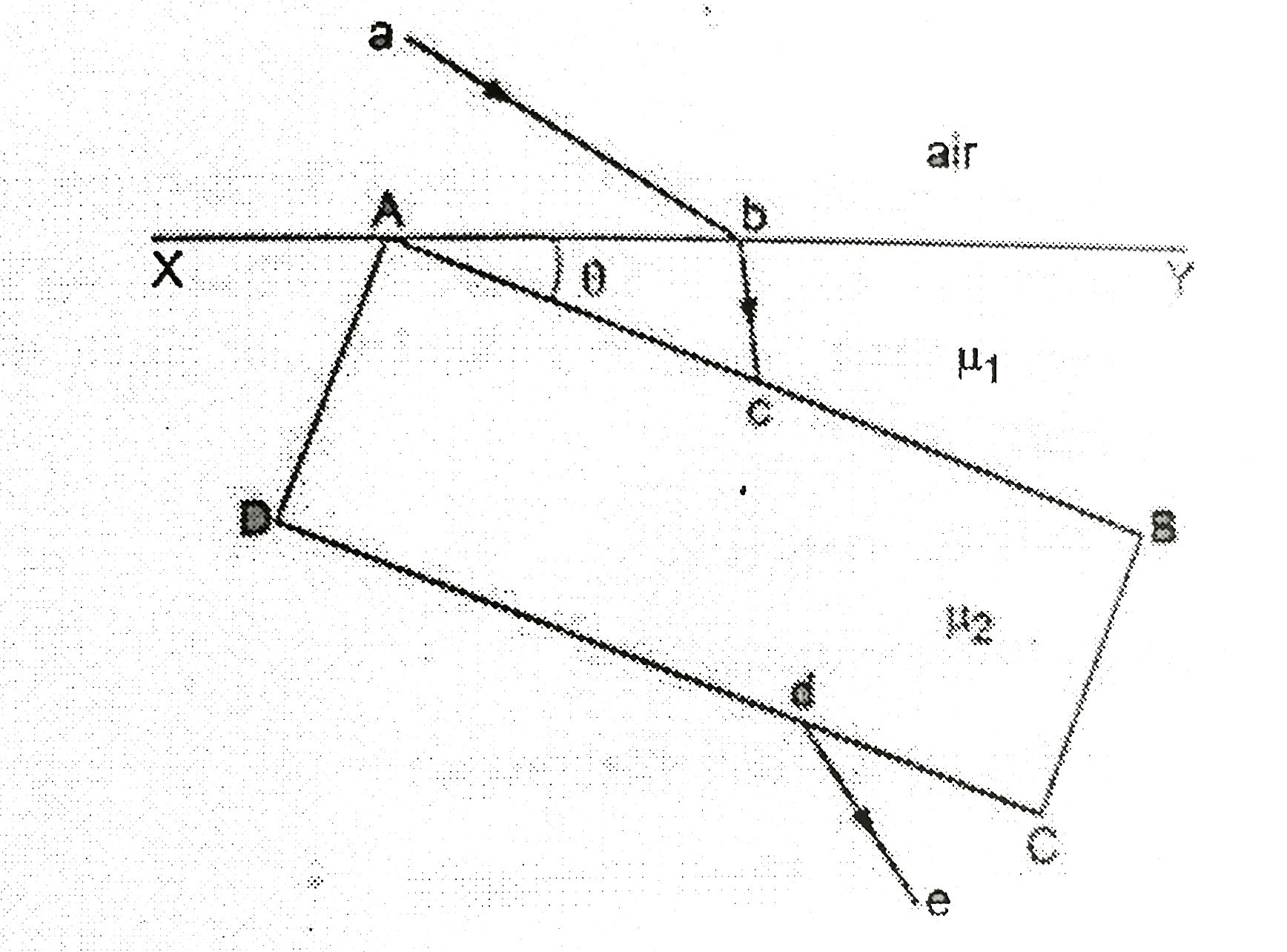
A ray of light ab passing through air enters a liquid of refractive index μ1 at the boundary XY. In the liquid, the ray is shown as bc. The angle between ab and bc ( angle of deviation) is δ. The ray then passes through a rectangular salb ABCD of refractive index μ2(μ2>μ1) and emerges from the slab as the ray de. The angle between XY and AB is θ. The angle between ab and de is
View Solution
